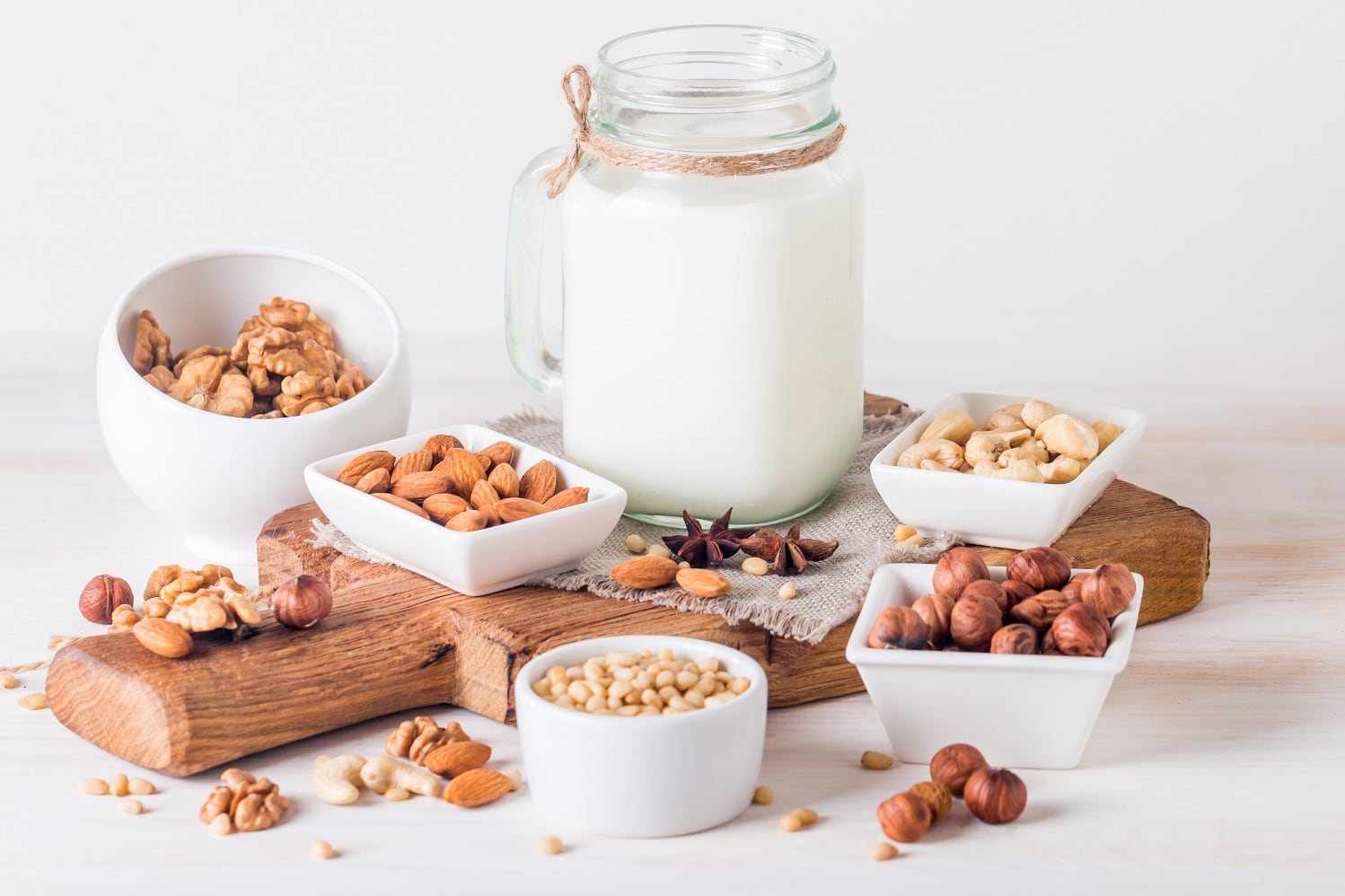In a Senate Appropriations Committee hearing on Tuesday, Sen. Tammy Baldwin (D-WI) - who introduced a bill (the Dairy Pride Act) that would prohibit the use of dairying terms to describe plant-based products – said that federal standards of identity limit the use of the term ‘milk’ to the lacteal secretions of cows.
Alleging that plant-based brands are “violating existing regulations and they are getting away with it because of inaction by the agency,” she asked what the FDA was doing “to enforce existing standards of identity.”
Dr Gottlieb confirmed that he had “actively stepped into this issue” and would be “taking a very close and fresh look at this,” but said that if the FDA were to suddenly start challenging the labeling of almondmilk and other plant-based products (having maintained radio silence on the issue since sending out a couple of warning letters in 2008 and 2012) this could be problematic.
“FDA having not stepped in in the past, there is now a lot of commercial activity going on…”
While Sen. Baldwin countered that there was no need “for further review or study,” he added: “We’ve exercised enforcement discretion for a period of time now, that for us to reverse our current posture might take more than just issuing guidance. We might want to develop a careful administrative record informed by data, and that is the intent of our request for information.”
Nutritional equivalency
However, he did indicate that he’d like to learn more about whether consumers expect plant-based products to be nutritionally equivalent to their dairy-based counterparts, an issue dairy milk producers (and some lawsuits) have frequently raised.
“If consumers are being confused and misled about the nutritional status or quality of milk because of the way certain products are being labeled, that’s something we’d want to take a look at and that’s something that would certainly inform the decisions we make here. So we will be issuing a request for information and that’s an opportunity for us to collect information that could form the basis of regulatory action here.”
NMPF: Sen Baldwin is imploring the FDA to do its job
The NMPF, which claims that the FDA has been turning a “blind eye” to alleged violations of its own standards of identity, thanked Senator Baldwin “for holding the FDA accountable for its inaction on this matter, and imploring the FDA to do its job.”
PBFA: Changing course now could put the FDA in a legal bind
However, Michele Simon, executive director at the Plant Based Foods Association (PBFA), told FoodNavigator-USA that Dr Gottlieb was “calling for data because he knows that FDA would be subject to legal challenge, which the agency would be unlikely to withstand."
She added: “He’s suggesting that changing course now, after decades of soymilk and almondmilk being on the market, could put the agency in a legal bind, given there is no rational basis for taking action.
“He also said that FDA acts based on public health concerns. Obviously, the agency has no evidence of any public health threat here.
“So is PBFA worried? Not at all. We know consumers are not confused, and FDA is saying they need data to take any action. This is a positive sign.”
GFI: This is not an issue of standards of identity
Jessica Almy, director of policy at the Good Food Institute (GFI), added: "Consumers choose plant-based products because they understand what they’re buying. Plant-based milks, ice creams, and cheeses have a variety of societal benefits over their cow-milk equivalents—and consumers choose them for these reasons, or simply to add variety to their diets.
"Nutrition facts panels disclose all relevant nutritional information, and consumers can readily compare various kinds of milks on the attributes that are most important to them.
"This is not an issue of standards of identity. Plant-based products aren’t pretending to be anything else. Rather, FDA should evaluate these labels, as it always does, on the basis of whether they contain appropriate qualifiers or the labels otherwise clearly and accurately disclose the nature of the product."
Watch the exchange between Sen. Baldwin and Dr Gottlieb below.
Do consumers think plant-based milk should be nutritionally equivalent to dairy?

In its 2017 comment on a petition from the Good Food Institute (GFI) calling for the FDA to formally recognize terms such as almondmilk, the National Milk Producers Federation (NMPF) argued that it was more concerned about nutritional equivalency than whether shoppers think almond milk comes from cows:
“What is completely misleading to the public is the inherent suggestion by the use of word ‘milk’ in these products’ names that they have comparable nutritional and food values to those of dairy milk… Preventing such marketplace practices is one of the primary reasons for the existence of food standards of identity.”
The ‘nutritional equivalency’ argument has not just been raised by the dairy lobby, with Adam Lowry, the co-founder of pea milk brand Ripple, arguing last year that consumers were laboring under the misconception that almond milk was a good source of protein, when in fact it was low in protein.
"The fact is that many nut milk drinkers think that those nut milks are a good source of protein, whether they claim to be or not. That’s the sham – that consumers think they are getting the same nutrition as dairy milk when they aren’t" Lowry told FoodNavigator-USA.
However, the Almond Board of California explained that, "Almond milk is appealing for a variety of reasons. The product has no saturated fat or cholesterol, many varieties are fortified with calcium and vitamin D, and unsweetened products can have 0 grams of sugar and as few as 30 calories per serving. It is also a satisfying option for people who are looking to avoid lactose or eat fewer animal products."
What do the courts say about plant 'milk'?

Courts handling false advertising cases over plant ‘milks’ have argued that the federal standard of identity for ‘milk’ - which limits it to lacteal secretions from cows - does not categorically preclude a company from giving food products names that include the word ‘milk.’
For example, in a case vs Trader Joe’s, judge Vince Chhabria noted that the word ‘soy’ before ‘milk’ cleared up any confusion as to the contents of the package in question: “Trader Joe's has not, by calling its products ‘soymilk,’ attempted to pass off those products as the food that the FDA has standardized (that is, milk).”
As for nutritional equivalency, meanwhile, Stephen Wilson, the judge handling a false advertising case vs Blue Diamond Growers (Almond Breeze) in California, did not buy the argument that the word ‘milk’ came with a certain set of nutritional expectations, adding: “If the consumer is concerned about the nutritious qualities of the product, they can read the nutrition label…”
What is the FDA's position on plant-based milk?

The FDA, say critics, has fluctuated unhelpfully on the issue of whether terms such as 'almondmilk' or 'vegan cheese' violate federal standards of identity or mislead shoppers.
For example, it queried the term ‘soy milk’ in warning letters to manufacturers Lifesoy in 2008 and Fong Kee Tofu in 2012, but thereafter maintained radio silence on the topic, which some plant-based brands say leaves them vulnerable to lawsuits, and dairy milk producers (who believe plant ‘milk’ brands are openly flouting the law), find infuriating.
The agency also raised eyebrows in 2016 by telling Hampton Creek it could keep its ‘Just Mayo’ brand name for its egg-free spread (which does not comply with the standard of identity for mayonnaise), albeit with minor tweaks to the label, just weeks after accusing it of violating said standard.
It has not weighed in since, but recently signaled its intent to “modernize certain standards of identity” in its 2018 strategic roadmap.
